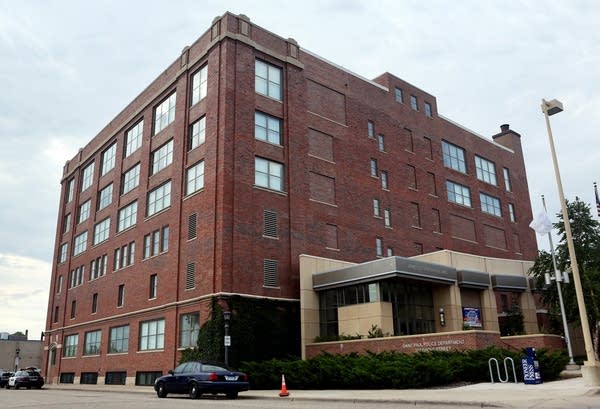St. Paul police crime lab review: Prosecutors will reconsider some drug convictions
Go Deeper.
Create an account or log in to save stories.
Like this?
Thanks for liking this story! We have added it to a list of your favorite stories.

Ramsey and Dakota County prosecutors, prompted by independent reports that found serious flaws in the St. Paul police crime lab, will reconsider some earlier drug convictions.
The review, which is expected to take months to complete, may result in some convictions being overturned, Dakota County Attorney James Backstrom said.
"The bottom line is that we all want to get this right," Backstrom said. "We want to make sure that appropriate review is taking place."
The plan came out of a meeting Wednesday between Dakota, Ramsey and Washington County attorneys and public defenders. At the meeting, prosecutors and defense attorneys expressed concern about the findings of two independent consultants hired to review the troubled St. Paul police crime lab. The consultants found major errors in almost every area of the lab's work. The failures include illegible reports, dirty equipment and ignorance of basic scientific practices. The lab, which served Ramsey, Dakota and Washington counties, suspended drug testing in July after employees testified they did not follow any written standard operating procedures.
Turn Up Your Support
MPR News helps you turn down the noise and build shared understanding. Turn up your support for this public resource and keep trusted journalism accessible to all.
"I'm hoping there won't be any vacated convictions, but if the evidence warrants that, that's going to occur."
Prosecutors will limit their review to a select number of cases. Meanwhile, state public defenders will continue a separate review of thousands of drug convictions in the past decade.
Prosecutors plan to examine only convictions by jury or court trial since July 1, 2010, a decision that excludes nearly all drug convictions because such cases rarely go to trial. Backstrom estimates less than 50 cases will need to be examined. Washington County prosecutors already reviewed their files and found no drug convictions by jury or court trial in that time period.
For the cases that went to trial, attorneys will request the original drug evidence be tested by another lab. If the lab's findings are negative, prosecutors will move to vacate the conviction.
But some cases may have no evidence left to retest. Those cases will not be automatically overturned, Backstrom said. Rather, attorneys will look at the files for other evidence, such as a preliminary drug test, that would indicate guilt. If the case lacks sufficient additional evidence, prosecutors will ask a judge to throw out the conviction.
It's too early to know how many cases, if any, will be overruled, Backstrom said.

"I'm hoping there won't be any vacated convictions, but if the evidence warrants that, that's going to occur," he said.
State public defender John Stuart called yesterday's meeting "constructive" and said he is pleased that prosecutors and defense attorneys are coordinating their efforts.
Everyone at the meeting, he said, "took the position that we didn't create this problem, but now that we've inherited it, we all want to see that justice is done."
Stuart said public defenders and prosecutors may disagree, however, about how to handle earlier drug convictions.
State public defenders are conducting a separate review of thousands of past drug convictions over the past decade. That review has identified 1,700 high priority cases. Public defenders are requesting transcripts for those cases, which include those in which a person remains in prison or has no other criminal record.
"We don't expect 1,700 cases are going to be going back to court," Stuart said. "We do have to review them, though, and we have to look for cases where there may be some problems with the lab results."
The Dakota County case that first exposed problems at the St. Paul police lab remains open. Judge Kathryn Messerich is expected to issue a ruling by late March on whether suspected drug evidence stored at the St. Paul crime lab may have been contaminated in a way that would make retesting at another lab unreliable.
The ruling will apply only to that case, but attorneys said it likely will influence how other judges handle similar challenges to the work of the St. Paul lab.
Dear reader,
Political debates with family or friends can get heated. But what if there was a way to handle them better?
You can learn how to have civil political conversations with our new e-book!
Download our free e-book, Talking Sense: Have Hard Political Conversations, Better, and learn how to talk without the tension.




